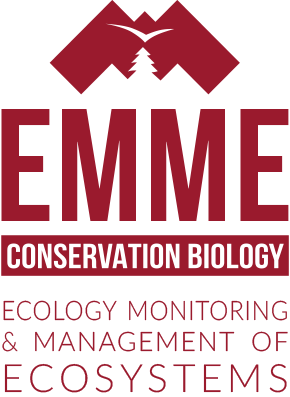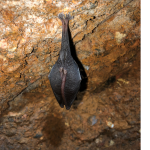Description:
Several options are available to students, who will choose 3 modules according to their professional goals and their internship subject. Each option comprises 33.3h of teaching, given by teaching staff including permanent staff and professionals from external bodies. For example, the botanical teaching will be provided by professionals from the National Botanic Conservatory of Franche-Comté. This unit aims, through practical and theoretical approaches, to reinforce methodological and/or taxonomic skills in the chosen field. The sessions consist of the implementation of a concrete project needing environmental data acquisition and treatment. The teaching staff will try to combine the skills of the different modules, creating multidisciplinary projects.
The following modules are available to the students:
- From Science to Regulatory Decision Making
- Ecohealth
- Ecotoxicology
- Methods for Food Webs Study
- Management and Monitoring of Ecosystems
- Molecular Ecology
- Paleoecology
- Spatial analysis and modelling
- Taxonomic specialisation
Learning outcomes are therefore specific to each module and are defined for each option.
Learning Objectives:
From Science to Regulatory Decision Making:
Theoretical learning outcomes:
• Identifying stakeholders and their role (alert, assessment, decision, risk management, control/regulation…).
• Understanding interactions between different stakeholders, and the decision-making processes involved in environmental risk assessment and health risk assessment.
• Identifying current scientific issues.
Technical learning outcomes:
• Analysing the decision-making processes and issues in risk management measures, and the place of science and scientists in these processes.
• Developing critical thinking (proven knowledge / fake news, information / disinformation, opacity / transparency …) and open-mindedness.
• Implementing different methods (i) of chemical hazard assessment (emerging contaminants, phytopharmaceutical, biocides …), (ii) of consumer exposure assessment, and (iii) of health risk assessment and environmental risk assessment related to nutrition.
Coordinator of the module: Pierre-Marie BADOT, pierre-marie.badot@univ-fcomte.fr
Ecohealth:
Technical learning outcomes:
• Being capable to frame health issues with a systems approach.
• Designing multidisciplinary research protocols at relevant scale(s) in order to explore such systems.
Coordinator of the module: Frédéric MAUNY, frederic.mauny@univ-fcomte.fr
Ecotoxicology:
Theoretical learning outcomes:
• Mastering the key concepts of theoretical (toxicokinetics, biological responses) and applied (risk assessment, biomonitoring) ecotoxicology .
Technical learning outcomes:
• Implementing field (soil sampling, biomonitoring) and lab (soil and tissue conditioning, pollutant analysis, toxicity bioassay) methodologies.
• Implementing an ecotoxicological approach based on lab and field methods to address management and research issues.
Coordinator of the module: Michael COEURDASSIER, michael.coeurdassier@univ-fcomte.fr
Methods for Food Webs Study
Theoretical learning outcomes:
• Knowledge of the key concepts and tools in food web study and trophic interaction assessment.
Technical learning outcomes:
• Acquiring technical skills for lake sampling (benthic sampling with cores, Ekman grab, plankton net…).
• Mastering sample conditioning methods.
• Analysing and interpreting results : isotopic signature, carbon content, C:N ratio …
Coordinator of the module: Hélène MASCLAUX, helene.masclaux@univ-fcomte.fr
Management and Monitoring of Ecosystems:
Theoretical learning outcomes:
• Knowledge of current and new approaches in adaptive management of protected areas (French plans de gestion for e.g. natural reserves, Open standards for the Practice of Conservation …).
• Knowledge of concepts and tools in biodiversity monitoring (adaptive monitoring, classical and less-invasive monitoring methods…).
Technical learning outcomes:
• Critical evaluation of the concepts and tools of spatial and species management and monitoring.
Coordinator of the module: Renaud SCHEIFLER, renaud.scheifler@univ-fcomte.fr
Molecular Ecology:
Theoretical learning outcomes:
• Knowledge of the molecular tools available to answer ecological questions.
Technical learning outcomes:
• Applying elementary DNA analysis methods: DNA extraction and amplification, electrophoresis.
• Manipulating data from molecular analysis (DNA sequences, genetic profile).
Coordinator of the module: Eve AFONSO, eve.afonso@univ-fcomte.fr
Paleoecology:
Technical learning outcomes:
• Applying paleoecological field techniques (coring, sampling, dating, cores-scanning …).
• Implementing a paleoecological approach to address management and research issues.
Coordinator of the module: Laurent MILLET, laurent.millet@univ-fcomte.fr
Spatial Analysis and Modelling:
Technical learning outcomes:
• Deepening mastery of data analysis, statistical computing and graphics (R, Rstudio) and its interface with GIS (QuantumGIS) and multi-agent simulation.
• Being autonomous in processing spatial data.
Coordinator of the module: Patrick GIRAUDOUX, patrick.giraudoux@univ-fcomte.fr
Taxonomic Specialisation:
Theoretical learning outcomes:
• Knowledge of taxonomy, biology, ecology and inventory methods of chosen taxonomic group(s) related to professional prospects.
Technical learning outcomes:
• Developing skills in identification and inventory of some floristic and/or faunistic taxon/taxa.
• Collaborating with stakeholders in order to acquire these skills.
• Identifying personal skills gaps in order to improve university and extra-university learning (associational activities…) and acquire a professional skill level.
Coordinator of the module: Renaud SCHEIFLER, renaud.scheifler@univ-fcomte.fr
Teaching Methods:
Practicals
Assessment:
Written report and/or oral defense (according to the chosen modules).
Recommended Reading:
The prerequisites and bibliographic resources are dependent on the chosen modules.
Coordinators of the teaching unit:
Michael COEURDASSIER, michael.coeurdassier@univ-fcomte.fr
Hélène MASCLAUX, helene.masclaux@univ-fcomte.fr
Laurent MILLET, laurent.millet@univ-fcomte.fr







